I learned very early on in my music career: never read the comment section. Or rather: only look at YouTube comments, Instagram comments, Twitter mentions, or blog comments with a discerning eye while wearing my toughest, full-body armor. While these can be places where fans say things like "Yaaas, queen, you are my spirit animal!," they can also be rampant with hurtful and sexist critiques about appearance and identity.
Don't get me wrong, I am grateful for and indebted to the support of my fans and colleagues who very much value my identity as a musician, and specifically as a female musician. (I'm a songwriter, singer, and one half of the band Best Coast.) And sometimes I even feel like I make a slight difference in the world by committing to being true to who I am, onstage and off; by presenting the person who I am to the world with #nofilter.
On my Instagram, I post photos of myself in pajamas with no makeup on eating boxed macaroni and cheese. On Twitter, I call people out for their ignorance in between tweeting things like "I wish I could take my cat as my plus one to events." In interviews, if someone asks me a question like "So how does it feel to be a female rock star who plays guitar? You really don't see many female rock stars with guitars" (this is seriously a question that I was asked by a male journalist in Toronto once), I say things like "That's a completely false and ignorant statement, and this interview is finished." (I got up and walked out. I've never felt more badass in my life!)
I'm just not afraid of being myself. I never have been. Even as a kid, I never felt like I had to put on an act to impress people or conform to the way people thought I should be. I will NEVER apologize for being an outspoken boss, because I don't owe anyone an apology. The Bethany you see in interviews and on social media and out in the world, that is the absolute, real-deal Bethany.
I will NEVER apologize for being an outspoken boss, because I don't owe anyone an apology.
Yet sometimes people dislike me or discredit my talents because I am a female musician who is not apologizing. I know that being critiqued is part of life, and especially part of work; that even if I were slinging soap at Lush (which I used to do), someone would still be telling me if I was doing a good or bad job, and that critique would determine the conditions of my employment. And a critique can be constructive. But with social media's omnipresence, it seems women can't do much of anything in public without someone making a misogynistic crack. Why has it become acceptable for "criticism" to take the form of abusive online commentary or vulgar, inappropriate heckling?
For example, I recently read a review that mostly lauded a Best Coast show — it specified how great the band sounded and how "sexy" I looked — but it bemoaned my lack of smiling. This article has, and continues to, deeply trouble me. This reviewer's gendered critique of my presence onstage revealed how he thought a woman who he saw as "sexy" should behave. It also showed how ideas about the sexualization of women are reinforced. Many people did not see the underlying sexism of the review. In fact, in the social media referencing the article, countless people attacked me with comments like "Get over it! He complimented you! Quit being a whiny bitch!"
Some comments were supportive and questioned how an article like this could have been published. The reality is that it was published because we live in a world where this kind of thing is considered OK. We live in a world where a man can yell at me while I'm onstage, "Bethany, I wanna fuck you!" and I am supposed to not only stand there and take it but also digest it as a compliment to add to my fierce arsenal of sexy confidence. Not only should I take it, I should be smiling and excited to be sexualized by my audience. If I'm not, there is something wrong with me.
Stay In The Know
Marie Claire email subscribers get intel on fashion and beauty trends, hot-off-the-press celebrity news, and more. Sign up here.
There are other kinds of abuse I've taken onstage. Best Coast once played a show at a "back to school" type of college concert. It was an event where students aplenty were drinking cheap vodka out of Dasani bottles and, apparently, throwing free burgers at me onstage. You might laugh at that last statement, but sadly it's 100 percent true. While we were playing, a male student in the front row of the crowd took it upon himself to throw a cheeseburger directly at my face while yelling, "YOU FUCKING SUCK." My reaction to this? "Wow, you're really lucky there is a barrier between us, because I would really like to come down there and slap you across the fucking face. It's a shame your mother didn't teach you any manners."
In the moment, I was pissed. I mean, wouldn't you be? Imagine you're standing there, doing your job, and suddenly, a fucking cheeseburger comes flying at your face. And attached to it: a man yelling at you that you suck. No, saying that I wanted to physically harm someone wasn't the right thing to do, nor was I really blaming this guy's mother for his bad behavior. But I was humiliated, and also smelled like a McDonald's, so I had no problem just saying the first thing that popped into my head. Keep in mind there were three other people onstage with me that day — two of whom stand on opposite sides of me, all of whom are men — and no one else got pelted by a burger. Maybe the tossing of the burger at my face had nothing to do with the fact that I am a female front woman; maybe I just happened to be standing where the burger landed. But to me, it had everything to do with the fact that I was a female front woman.
On Monday, January 19, a few weeks after I wrote the first draft of this essay, a peer of mine in the music industry named Amber Coffman, who is in the Dirty Projectors, published several tweets about a well-known music publicist named Heathcliff Berru sexually harassing her. When I saw these tweets, I knew I had to speak up, because Heathcliff has sexually harassed me too. I had never shared my story publicly because I was afraid of the backlash that I might receive or that I would come across like some kind of wrathful bitch. After I read Amber's tweets, I decided it was time to tweet in support of her. I wasn't just one of his victims — I knew plenty of other women who had their own "Heathcliff stories."
I had never shared my story publicly because I was afraid of the backlash that I might receive or that I would come across like some kind of wrathful bitch.
After I supported Amber, the floodgates opened. Women started writing how they had felt personally victimized by his actions. By the following morning, Heathcliff had stepped down as CEO of his PR company, which has since become defunct. As much as it pains me to see these stories from so many women, stories that go back as far as ten years and are as recent as only a few months ago, I am so glad that this situation was finally brought to light and that these victims now have a supportive bond and can provide strength to others who may want to come forward.
Though a sexist review is certainly not the same as getting sexually harassed or assaulted over the course of a decade, it's all part of the same continuum. Because when someone critiques Best Coast's live performance because "Bethany looks like a miserable bitch onstage," it is a gendered attack. There are currently four men in my band, and no one is really talking about how they don't smile onstage or how hot their outfits are. There are never comments about their bodies, demeanors, or stage presence, other than those lauding their instrumental virtuosity. What the fuck is it about a woman that makes everyone think we need to be smiling all the time to prove to the world we are having a good time?
With the release of our last record, California Nights, the public got to see an older, more spiritually mature, more confident version of Bethany and Best Coast. It meant that they started hearing less witty banter and more feedback between songs. It meant wearing outfits onstage that I was never confident enough to pull off in the past. But suddenly people wanted to comment on how my "seriousness" onstage translated to my looking like a "bitch" or like I was in a "bad mood."
But a line needs to be drawn. People need to stop calling women "bitches" because they're strong and empowered. People need to stop calling me a "slut" for my public support of Planned Parenthood, an organization that has saved my life as well as many other men's and women's lives. People need to stop calling me a "whiny baby" because I write songs about heartache and my feelings. Did anyone call The Beatles "whiny babies" for singing the lyrics "This boy wants you back again"? Did anyone call them "desperate" or "needy" for singing "Oh please say to me / You'll let me be your man / And please say to me / You'll let me hold your hand"?
It might be evident from this essay that I feel a lot of things, including confusion and anger, toward the way I am perceived as a woman in the music industry. I just want to be able to exist and make music without people asking me the question "So what is it like to be a girl in a band?" In reality, it's one of the best things in the world. But on a bad day, it can make me question if I chose the right career.
I know I absolutely chose the right career. I am a creative, strong, outspoken woman, and my voice will not be silenced. If anything, I will deal with the sexist bullshit and have burgers thrown at my face so that I can use my voice to say "THIS IS NOT OK!" and let women (and men) know that we don't have to accept this type of behavior. To the girl who is feeling confused about her own identity, I say this to you with total confidence: You are talented, you are resilient, you are unique. And don't ever let some burger-tossing bro allow you to think otherwise.
Bethany Cosentino is the singer and songwriter for the band Best Coast. Their latest album, California Nights, is available now on Harvest Records. She is an activist for women's rights and has been on the Planned Parenthood Federation of America Board of Advocates since 2011.
-
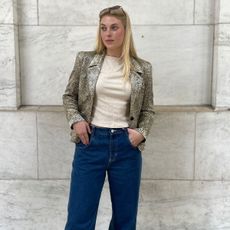 30 Spring Items That Solve My Expensive-Taste-on-a-Humble-Budget Dilemma
30 Spring Items That Solve My Expensive-Taste-on-a-Humble-Budget DilemmaSee every under-$300 spring item on my wish list.
By Natalie Gray Herder Published
-
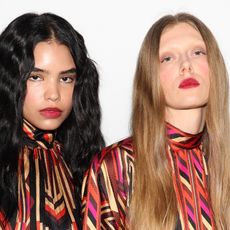 Your Makeup Won't Budge With These Setting Sprays
Your Makeup Won't Budge With These Setting SpraysPrepare for 12-hour wear.
By Sophia Vilensky Published
-
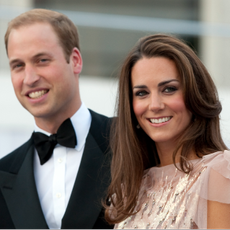 Prince William Single-Handedly Planned His and Kate Middleton’s Romantic Honeymoon
Prince William Single-Handedly Planned His and Kate Middleton’s Romantic HoneymoonKate had no idea where they were headed on their two week luxurious break from reality until after their 2011 wedding.
By Rachel Burchfield Published
-
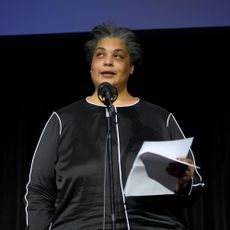 Black Lives Matter Quotes That Are Powerful, Informative, and Necessary
Black Lives Matter Quotes That Are Powerful, Informative, and Necessary"Racism is a visceral experience...It dislodges brains, blocks airways, rips muscle, extracts organs, cracks bones, breaks teeth. You must never look away from this."
By Katherine J. Igoe Published
-
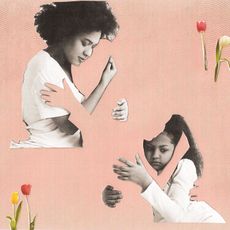 Being Estranged From My Mom Is Hard. Mother’s Day Makes It Harder
Being Estranged From My Mom Is Hard. Mother’s Day Makes It HarderIt’s high time to start representing the different types of mother-daughter relationships—or lack thereof—that exist during the holiday.
By Christina Wyman Published
-
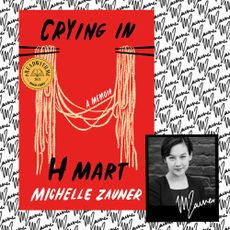 'Crying in H Mart' Is Our May Book Club Pick
'Crying in H Mart' Is Our May Book Club PickRead an excerpt from Michelle Zauner's memoir, here, then dive in with us throughout the month.
By Rachel Epstein Published
-
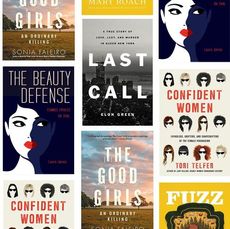 The 13 Best True Crime Books to Devour
The 13 Best True Crime Books to DevourThe definition of page-turners.
By Maria Ricapito Last updated
-
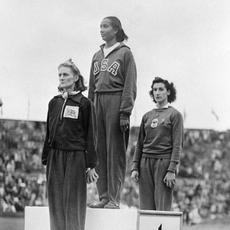 23 Black History Heroes You May Never Have Heard Of
23 Black History Heroes You May Never Have Heard OfThese are life stories worth knowing.
By Bianca Rodriguez Last updated
-
 To End Sexual Abuse in Churches, Dismantle Purity Culture
To End Sexual Abuse in Churches, Dismantle Purity CultureThe Christian church’s norms provide the perfect cover for sexual predators—and leave their victims feeling like the sinners.
By Leslie Goldman Published
-
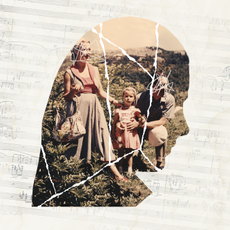 I Was Adopted by a Sex Offender
I Was Adopted by a Sex OffenderHow my stepfather's past changed my future.
By Sine Nomine Published
-
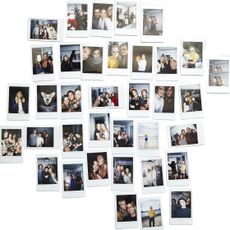 Where Did All My Girlfriends Go?
Where Did All My Girlfriends Go?Even in our hyperconnected world, true friendship remain elusive for young women looking to rebuild their college-era squads.
By Maggie Bullock Published